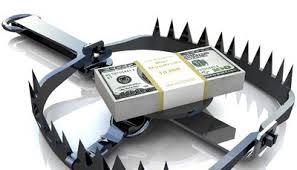So you’re 50. It’s better than you feared. It’s better still if you’re serious about your retirement savings. Indeed, pre-retirees are often positioned to fund their nest eggs as never before.
Higher Tax Bracket, Bigger Benefit
“If you’re married and you and your spouse both make catch-up contributions to your savings, you can save a good chunk of money.
For example, assuming you start catch-up contributions to your saving at age 50, with an 8 percent annual rate of return, you would have amassed a savings of 667,661 by age 65. By comparison, if you make only the standard 17,500 contribution per year starting at age 50, you would have 508,003-about 160,000 less.
Another upside to being 50 and at the top of your earnings game is that your contributions to a tax-deferred account will likely benefit you more now than they did when you were 20.
Sidestepping Landmines
When you reach your 50s, of course, there are plenty of financial landmines that could dent your savings. You may, for example, find yourself part of the “sandwich generation,” providing often costly care to aging parents while still supporting your children.
Your Parents’ Finances, Plans
Thus, it’s important to talk openly with your parents about their financial position and plans.
“Be sure your parents have an estate plan in place and long-term care coverage, or at least a picture of their final stages of life, because it might affect you,”
Your Portfolio
On paper, you may appear to have all the money you need, but if your portfolio consists primarily of real estate, your ability to cover living expenses after the paychecks come to a halt may be compromised.
It’s also important to ensure your home, health, life and auto insurance coverage is sufficient to protect your savings and your family in the event of an unexpected medical emergency
The most important thing to remember, though, is that it’s never too late to save.
Also, with retirement coming in your 60s, you need to review everything to make sure you are taking advantage of all employee benefit programs as well as tax-savings strategies.




